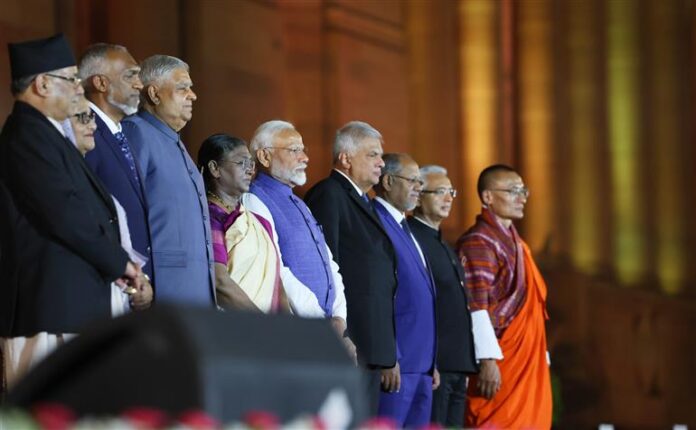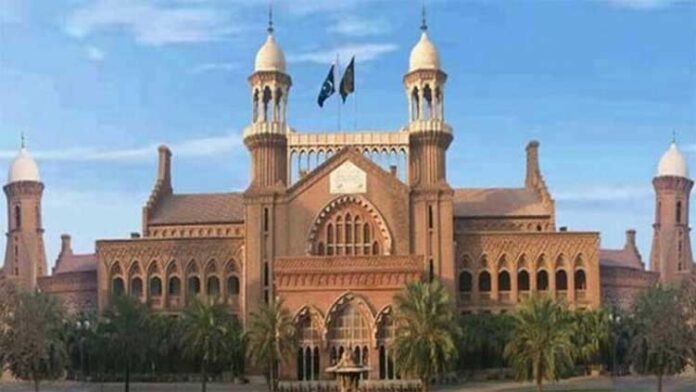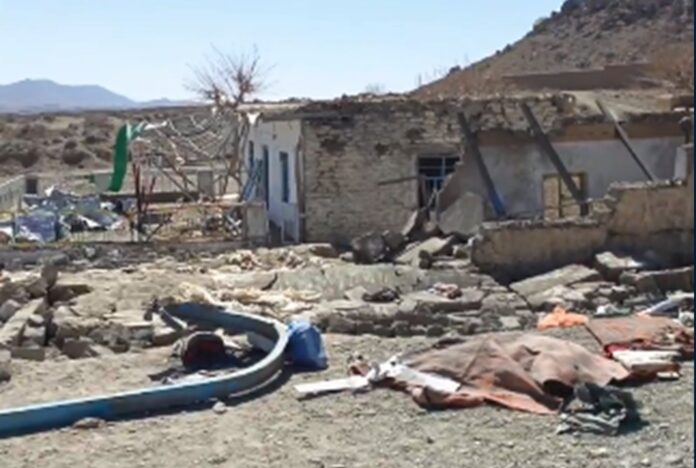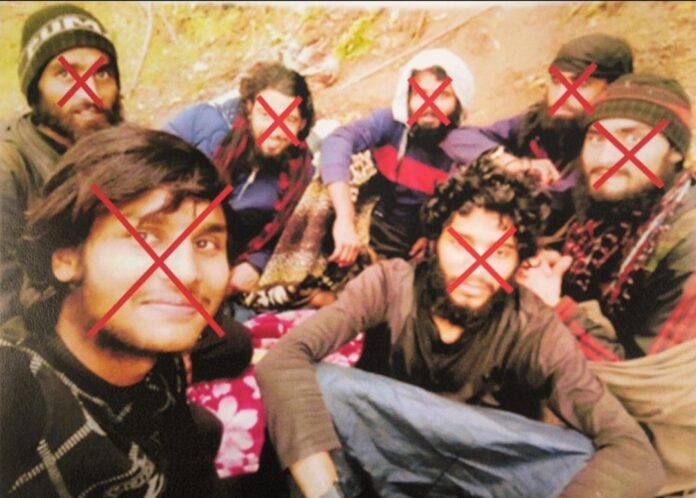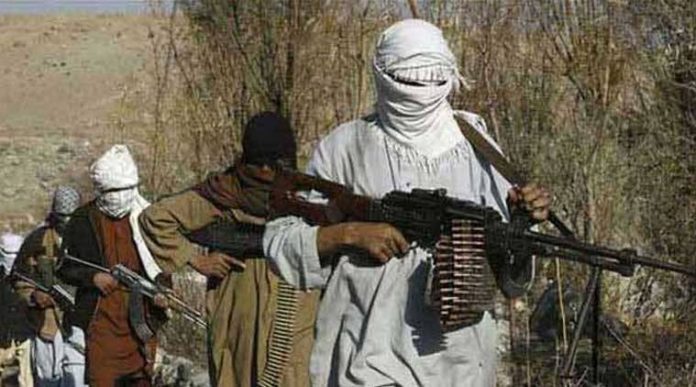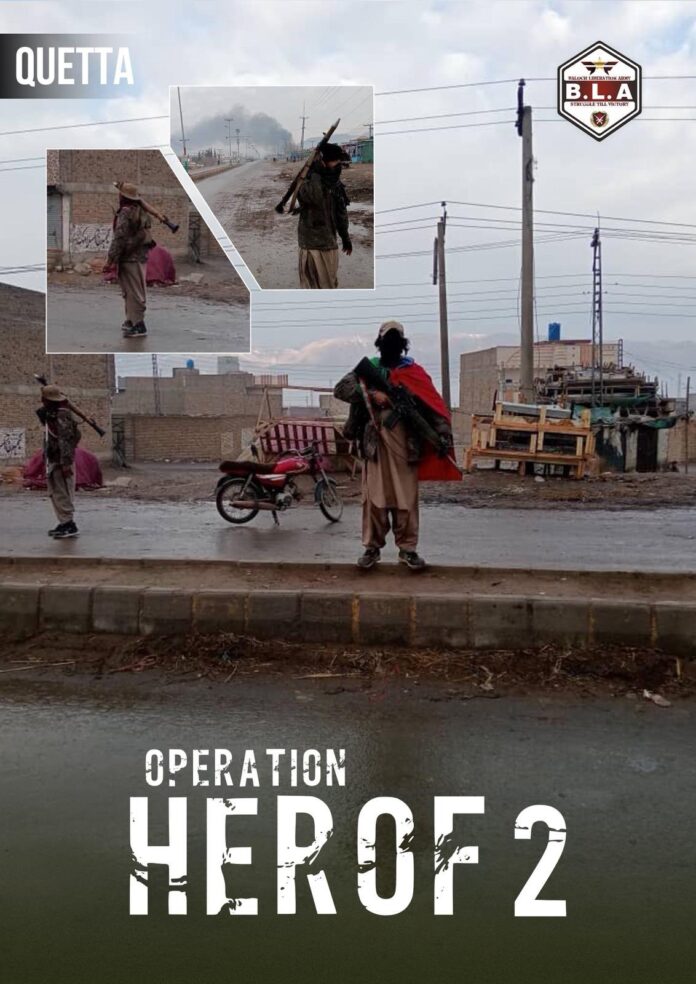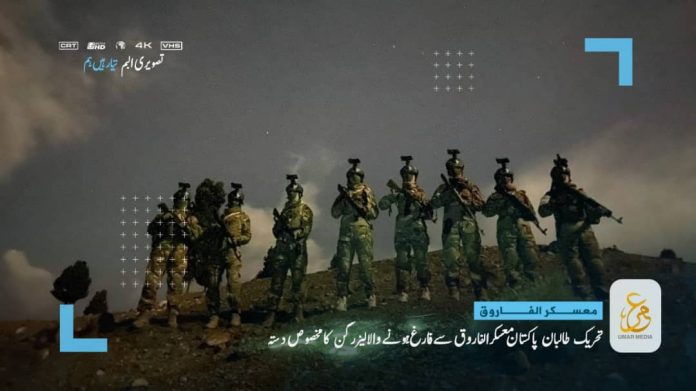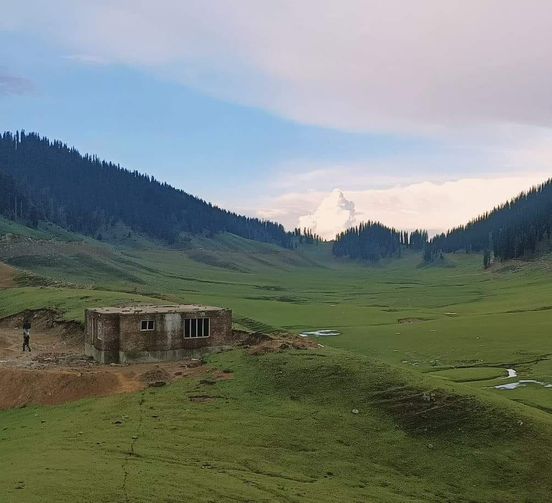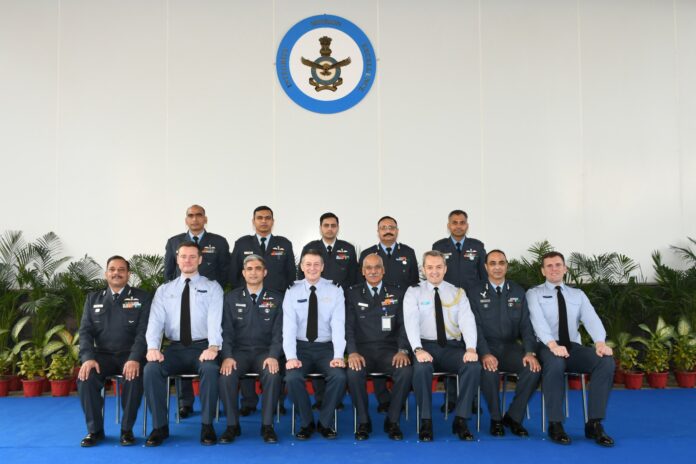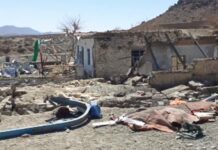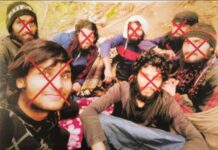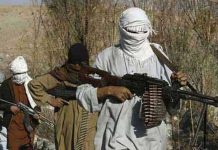The nuclear tests conducted by Pakistan on May 28, 1998, in Chagai mountains of Balochistan have resulted in devastating consequences for the region and its people, according to activists. The radiation emitted from the atomic explosions have caused serious health problems for the people, particularly the children. It has also seriously impacted the water bodies and flora of Balochistan. #nuclear #nucleartests #Chagai #balochistan #health #Pakistan #atomic What We Offer In-Depth Analysis and Exclusive Reports: Our team of experienced journalists and analysts delve deep into the complexities of regional and international issues, providing you with exclusive reports and thorough analysis. Whether it’s the intricate political dynamics of Balochistan, the ongoing developments in POK, or the security challenges in Kashmir, we bring you stories that matter. Timely and Accurate Updates: Stay informed with our timely updates on the latest events and trends. From breaking news to detailed feature stories, NVI ensures you are always ahead of the curve with accurate and reliable information.
Persecution of Hindus, Christians and other minorities in Pakistan
Minorities, like Hindus and Christians, have been suffering immense atrocities in Pakistan. Very frequently, some or the other member of a minority community, whether Hindu or Christian, is subjected to humiliation, tortrure and cruelty in various forms. While men are thrashed and even lynched, their girls are raped and forcibly converted to Islam to be married to a Muslim man against their choice. Most tragically, the victims of these victims get no support from the police, the government or even the judiciary. #pakistan #minorities #Hindus #christians
India’s neighbours participate in Modi’s grand oath-taking ceremony
Prime Minister Narendra Modi met with the visiting leaders who congratulated him for the historic third consecutive term in office.
New Delhi, June 9: Narendra Modi took oath as the Prime Minister of India for the third consecutive time, in a grand ceremony on Sunday evening that saw the leaders of seven neighbouring countries invited as honoured guests.
Modi, clad in white kurta and churidar and donning a blue jacket, was administered the oath of office and secrecy by President Droupadi Murmu at the Rashparati Bhawan here.
The 74 year old leader took the oath in the name of God to loud cheers from the large number of guests, which included leaders from India’s neighbourhood and the Indian Ocean Region.
The leaders who attended the ceremony included President of Sri Lanka, Ranil Wickremesinghe; President of Maldives Mohamed Muizzu; Vice-President of Seychelles Ahmed Afif; Prime Minister of Bangladesh Sheikh Hasina; Prime Minister of Mauritius, Pravind Kumar Jugnauth accompanied by his spouse; Prime Minister of Nepal Pushpa Kamal Dahal ‘Prachanda’; and Prime Minister of Bhutan, Tshering Tobgay. Leaders of Maldives, Bangladesh, Nepal and Bhutan were accompanied by Ministers.
Following the swearing-in ceremony, Prime Minister Narendra Modi met with the visiting leaders who congratulated him for the historic third consecutive term in office. Thanking them for gracing the occasion, Prime Minister Modi reaffirmed India’s commitment to its ‘Neighbourhood First’ policy and ‘SAGAR Vision’.
Prime Minister Modi emphasized that in his third term, India will continue to work for the peace, progress and prosperity of the region in close partnership with the countries, even as it pursues its goal of VIKSIT BHARAT by 2047, a statement said.
In this context, he called for deeper people-to-people ties and connectivity in the region. He further added that India would continue to amplify the voice of the Global South in the international arena.
The leaders also attended a Banquet hosted by President Droupadi Murmu at Rashtrapati Bhavan. The President while welcoming them and conveying her wishes to Prime Minister Modi in the service of the nation, stated that India’s democratic exercise was not only a moment of pride for its people, but an inspiration to millions around the world.
The participation of leaders from India’s neighbourhood and the Indian Ocean region on the momentous occasion of swearing-in ceremony of the Prime Minister and Council of Ministers, underlines India’s deep-rooted bonds of friendship and cooperation with the region, a statement said.
Journalists, opposition groups boycott controversial Punjab Defamation Bill
The central Joint Action Committee (JAC) of the media bodies announced a total boycott of coverage concerning all government affairs as a mark of protest.
Islamabad, June 9: The controversial Punjab Defamation Bill 2024 was officially brought into effect and became a full-fledged law in Pakistan after the province’s Acting Governor Malik Ahmed Khan signed it. Seen as a draconian bill which curbs press freedom in the country, the bill was boycotted by various organisations and opposition groups in the National Assembly.
Drawing great ire from journalist groups and civil society organisations, the central Joint Action Committee (JAC) of the media bodies announced a total boycott of coverage concerning all government affairs at both the provincial and federal proceedings in the National Assembly as a mark of protest.
The Council of Pakistan Newspaper Editors (CPNE), All Pakistan Newspapers Society (APNS), Pakistan Broadcasters Association (PBA), Pakistan Federal Union of Journalists (PFUJ) and Association of Electronic Media Editors and News Directors (AEMEND), held an emergency meeting to discuss the development and decided to record their protest against the law.
Just hours after the bill was passed, a joint petition was filed in the Lahore High Court (LHC) by journalists Riaz Ahmad Raja and Jaffar Ahmad Yar challenging its legality. The petition asked the high court to strike down the defamation law, saying it violated the fundamental rights of citizens protected in the Constitution.
The plea lamented that journalists were not consulted before the passing and approval of the defamation law, arguing that it was ludicrous and unconstitutional to allow a person to bring a claim of defamation without any proof.
Pakistani airstrikes hit Madrassa, Mosque in Afghanistan; killed civilians: UN body
Afghan government says copies of Holy Quran were burnt due to Pakistani air raids on Madrassa
Kabul, Feb 23 : The Pakistani air strikes in Afghanistan during the February 21-22 night hit a Mosque and a Madrassa, killing civilians, including children, a UN body said today, confirming the assertion of the Taliban regime which said even the copies of Holy Quran were burnt due to the “barbaric” attacks.
The government of Afghanistan said “the Pakistani military regime demonstrated that it is hostile not only to the lives of Afghans, but also to Afghans’ religion, education, educational centers and cultural institutions.”
Pakistan’s military regime “openly violated all Islamic and human principles” as it “brutally attacked the Farooqi Madrassa in the Margha village of Barmal district of Paktika and Gardi Street of Nangarhar Behsud district near the Durand Line,” said the Ministry of Education of Afghanistan.
The spokesperson of the Ministry said that the attacks resulted in killing of 8 students of Farooqui Madrassa — 5 boys and 3 girls — and injury to one.
Dozens of other innocent Afghans, including children and women, were killed or injured in these attacks, he said.
The Madrassa was destroyed and copies of the Holy Quran and religious books were burnt in the air raids by the Pakistani military regime, the spokesperson said.
“These unforgivable barbaric actions show that Pakistan’s military regime is hostile not only to the lives of Afghans, but also to Afghans’ religion, education, educational centers and cultural institutions,” he added.
Meanwhile, the UN Assistance Mission in Afghanistan (UNAMA) issued a statement, saying it has received “credible reports of civilian casualties as a result of the overnight airstrikes carried out by Pakistan inside Afghanistan late on 21 February and into the early hours of 22 February.”
It said: “On 21 February, at approximately 22.45 to 00.15 on 22 February, Pakistani military forces conducted airstrikes in Behsud and Khogyani districts in Nangarhar Province. Preliminary civilian casualty figures indicate at least 13 civilians were killed and seven others injured, including women and children.”
It added that Pakistani military forces also conducted airstrikes in Barmal and Urgun districts of Paktika Province of Afghanistan.
“In the first reported incident, on 21 February, at approximately 12:15, in Barmal district, Marghai area, an airstrike impacted a madrassa, and partially damaged a nearby mosque.
“In the second reported incident, at approximately 23:30 in Urgun district, Dahna area, an airstrike impacted and partially destroyed a vacant private residential house. No civilian casualties have been reported so far,” UNAMA said.
In an obvious message to Pakistan, the UN body said it “reminds all parties of their obligations under international law to comply with the key principles of distinction, proportionality and precaution to prevent civilian casualties.”
Kishtwar encounter marks end of 7-member Pakistani terror module
JeM terror module called itself 'Israel Group'
Kishtwar (J&K), Feb 23: With yesterday’s killing of 3 hardcore Pakistani terrorists, including a so-called ‘Commander’, the security forces have eliminated an entire 7-member module of Jaish-e-Mohammad (JeM) outfit active in Kishtwar district of Jammu after a sustained pursuit lasting 326 days.
Significantly, a dog of the Indian Army, named ‘Tyson’, played a critical role in the success of yesterday’s operation and was injured.
The seven terrorists had infiltrated into Jammu and Kashmir in April 2024 and during the last one-and-a-half years, the security forces established contact with them 17 times.
In three such armed engagements, the entire module, which called itself ‘Israel Group’, was neutralised by the security forces.
Officials said the killed terrorists were well-trained and equipped with a number of weapons, military-trade equipment and a large quantity of ammunition.
The security forces pursued this terror group since April last year following intelligence reports about their presence in Kishtwar region.
The hunt, jointly involving the Army, Jammu and Kashmir Police (JKP) and CRPF, was sustained in the inhospitable region through difficult conditions like snow and rains, besides the extreme winter cold.
In the initial phase of the 10-month-long hunt, three hardcore terrorists were killed in a fierce encounter in April 2025.
Other 4 members, including Commander Saifullah, of the terrorist group, however, remained at large but the security forces remained determined to track them down.
In January this year, there were intelligence inputs from JKP, IB and Indian Army sources regarding the movement of the remaining 4 terrorists of the group.
Acting on these, a Joint Counter Terrorist (CT) Operation was launched by the Indian Army along with JKP and CRPF, codenamed ‘Operation Trashi-I’, in the Chhatroo area of Kishtwar region to track and neutralise the terrorists.
On January 18, contact was established with the terror group and their well-prepared and stocked hideout was busted by the security forces, the Indian Army said.
On February 4, the fourth terrorist of the group, code named Adil, was killed by the security forces during their relentless pursuit.
Finally, the remaining three terrorists were tracked down to a ‘dhok’ (a mud house usually found in mountains) located on a set of steep slopes of a mountain unit and it was surrounded during the intervening night of February 21 and 22.
They were engaged by the security forces at around 11 AM yesterday and within a few hours, all the three were neutralised.
“The troops displayed exceptional tactical precision and swiftness, ensuring zero casualties among their own personnel,” said an Army statement.
The role of ‘Tyson’, an Army-trained dog, needs a special mention in the context of the successful operation.
It entered the Dhok to ascertain the presence of terrorists, who fired at it and injured it.
During the subsequent search of the area, war-like stores, including three AK-47 rifles, have been recovered along with bodies of the slain terrorists.
“Displaying high standards of tactical precision, seamless inter-agency coordination and resolute operational efficiency, Security Forces including JKP and CRPF, rigorously pursued the terrorist group in the challenging and rugged terrain and harsh weather conditions. The persistent actions of the security forces in this long duration large scale operation spanning over a month, the security forces have neutralised all four hard core terrorists,” the Army said.
“The operation reflected seamless coordination between the Army, CRPF and the Jammu and Kashmir Police, notably the SOG (Special Operations Group). Reinforcements, including special forces, were quickly mobilized. The Army utilized real-time surveillance drones and night vision equipment to track and contain terrorist movement, preventing any potential escape,” it added.
Taliban regime angry at Pakistan over airstrikes, vows adequate response
Tensions escalating as Pakistan kills dozens of civilians, including infants and women, during Holy Ramadan
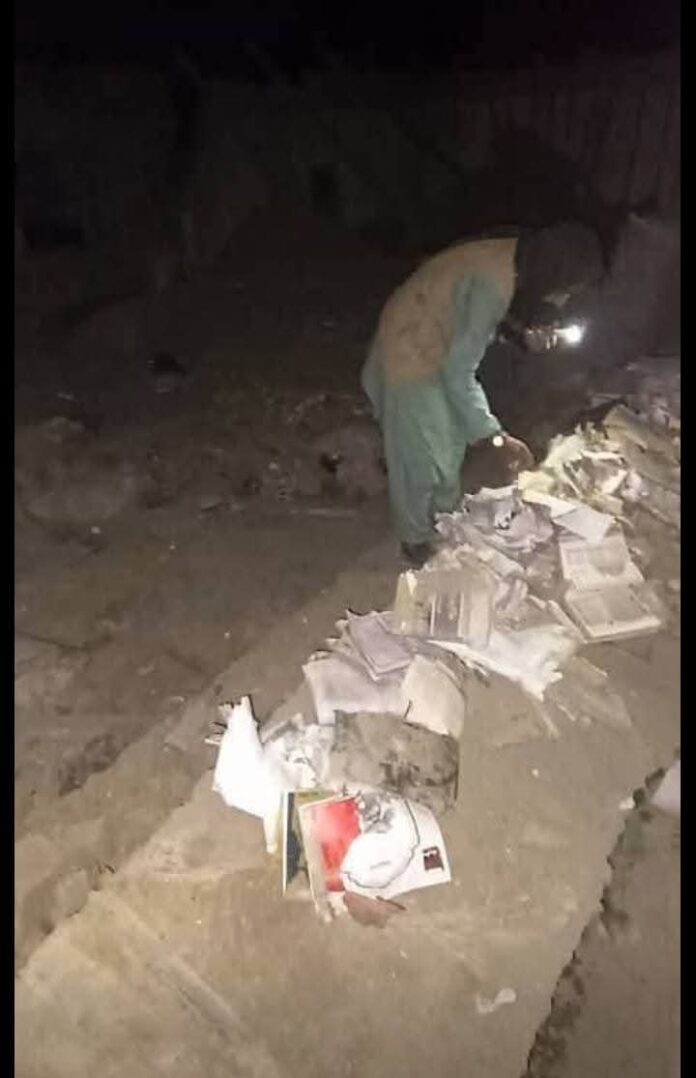
Kabul, Feb 23: The Taliban regime is seething with anger against Pakistan which carried out cross-border airstrikes at multiple places in Afghanistan soil last night, killing dozens of innocent civilian Afghans, including infants, children and women, that too during the ongoing holy month of Ramadan.
The Taliban regime said the Pakistani military air strikes in Paktika and Nangarhar provinces were against the Islamic values, neighbourly principles and international laws as it violated Afghanistan’s sovereignty
The Afghan regime vowed appropriate response at an appropriate time against Pakistan.
The airstrikes hit civilian houses and even mosques, reducing those to rubble which buried many innocent people, including infants and women.
“The Pakistani military regime has once again carried out air attacks on several civilian areas in Afghanistan’s Nangarhar and Paktika provinces, in which dozens of innocent civilians, including women and children, have been killed or injured,” said an angry Maulvi Siddiqullah Nusrat, Deputy Spokesman of Taliban regime’s Ministry of National Defense in a video statement.
He said the air strikes amounted to invasion of Afghan territory and it gave clear evidence of the intelligence and security failure of the Pakistani army which made the contentious claim about conducting the action against militants of Tehreek-e-Taliban Pakistan (TTP).
He said the Ministry of National Defense saw the Pakistani action as a “flagrant violation of Afghanistan’s national territory” and an abhorrent crime, which went against the international laws, neighborly principles and Islamic values.
Emphasising that the Taliban regime considers the protection of the country’s sovereignty and security of its people as its legitimate and national responsibility, Nusrat promised “an appropriate and calculated response at the appropriate time.”
The Taliban regime stressed that the air strikes were an attempt by the Pakistani military to hide its failures on internal security front.
The Pakistani action has also been slammed by India, which expressed its support to Afghanistan’s sovereignty, territorial integrity and independence.
“India strongly condemns Pakistan’s airstrikes on Afghan territory that have resulted in civilian casualties, including women and children, during the holy month of Ramadan,” said External Affairs Ministry spokesman Randhir Jaiswal in a statement.
He said the action was “another attempt by Pakistan to externalise its internal failures”.
TTP kills 24 Pakistani soldiers in multiple attacks
Peshawar, Feb 22: At least 24 personnel of Pakistani military and affiliated agencies have been killed, several others injured and a large amount of military assets destroyed in multiple attacks by Tehreek-e-Taliban Pakistan (TTP) in Khyber Pakthunkhwa during the last two days, according to the outfit.
Among these operations, the highest casualty was suffered by the Pakistan Army in Orakzai district of Khyber Pakhtunkhwa, where TTP ambushed a military patrol party in Feroz Khel area, killing 9 soldiers and injuring 5 others.
In Bannu district, TTP killed 8 personnel of Pakistani forces in a mortar attack on the police lines in Daryoba area, the outfit said in a statement.
In Bajaur district, a Pakistani military officer was killed in a laser gun attack on a check post in Safri in Mahmond.
In North Waziristan, two Pakistani soldiers were killed in a Grenade Launcher attack on the Shash Kruz military post.
In South Waziristan, two Pakistani soldiers were killed in an ambush on a military convoy in Torah Gola area of Azam Warsak, the TTP said, adding one vehicle was partially damaged in the attack.
One more Pakistani soldier was killed in an attack on a military post in Sarkhani in Shawa, it said.
Another soldier was killed in a laser-gun attack by TTP on a check post in Safari area of Wara Mahmond in Bajaur district, the outfit said.
Delhi Police arrests 8 Bangladeshis for plotting terror acts at behest of Pakistan’s LeT
Two suspects were arrested from West Bengal and 8 from Tamil Nadu
New Delhi, Feb 22: Delhi Police today claimed to have foiled a plan of Pakistan-based Lashkar-e-Taiba (LeT) terror outfit to carry out attacks as it arrested eight Bangladeshi nationals in an operation in West Bengal and Tamil Nadu.
Delhi Police’s Special Cell, which specifically deals with terrorism-related cases, said the arrested suspects were part of a terror module getting directions from a Bangladesh-based operative of LeT, identified as Shabbir Ahmed Lone of Kashmir.
Additional Commissioner of Police (Special Cell) P.K Kushwaha told a press conference here that two of the suspects, Umar Farooq and Robil-Ul Islam, were arrested from Kolkata in West Bengal and six others were arrested in Tamil Nadu.
Kushwaha said Lone had constituted this module as part of plans to carry out terrorist activities in India.
These suspects had even conducted dry runs, he said.
“A team from the Special Cell busted a module that was being handled by a Lashkar handler based in Bangladesh. A major untoward incident has been prevented,” he said.
Investigation began after anti-national and pro-terrorist posters surfaced at Metro Rail Stations in Delhi, including at Kashmiri Gate Station, on February 7.
Subsequently, Delhi Police arrested Umar Farooq and Islam in Kolkata with the help of local police, Kushwaha said.
The suspects revealed that they were directed by Shabbir Lone, a Kashmiri terrorist based in Bangladesh, who has a history of terrorist activities.
“They revealed that anti-India posters were put up at many places in Delhi…It was found out through interrogation and investigation that the direction to them was being given by Shabbir Ahmed Lone, from Bangladesh,” Kushwaha said.
Lone, hailing from Ganderbal district of Kashmir, was arrested in 2007 with AK-47 and grenades, when he planned to carry out a suicide attack on a senior political leader, the police officer said.
“He (Lone) remained in jail for many years and was released in 2019. After his release, he again fled to Bangladesh…. Initial investigations have revealed that he reconnected with the LeT leadership and re-established his organisation to carry out terrorist activities,” Kushwaha added.
Further investigation led to the arrest of six more Bangladeshi nationals in Tamil Nadu, who were allegedly part of the plot, he said.
“He (Lone) re-assembled his men and conducted dry runs with these men. He had posters put up in various locations. He did so not just in Delhi, but also in Kolkata.
“On February 10th, he put up anti-India posters at several metro stations and other locations in Kolkata. He also rented a house in Kolkata,” the Delhi Police officer said.
“Investigation revealed that some individuals who are Bangladeshi nationals were in Tamil Nadu. They were going to take them back to Kolkata and plant them in a terrorist activity before they could do anything. The team then went to Tamil Nadu and, with the help of the Tamil Nadu police, arrested six more people, all of whom are Bangladeshi nationals,” Kushwaha said.
Balochistan: BLA releases fresh video about ‘Operation Herof 2’
The video shows how BLA fighters captured Pakistani aasets
Quetta, Feb 20: Baloch Liberation Army (BLA) tonight released a new video showing how its fighters, during the recent ‘Operation Herof 2’, took control of Pakistani military posts as well as the railway station, a train, and other government offices in Ahmad Wal in Noshki district of Balochistan.
After control was established, these sites were set on fire and destroyed, BLA said in a statement.
Big hit on Pakistani forces: TTP claims killing of 61 soldiers
Peshawar, Feb 18 : In a huge hit at the Pakistani forces, Tehreek-e-Taliban Pakistan (TTP) has claimed to have killed more than 61 personnel and destroyed substantial assets of the military in Khyber Pakhtunkhwa Province.
In a statement, it said the TTP carried out an attack on a camp of Pakistani paramilitary force Frontier Corps (FC) in Malangi in Loi Mahmond in Bajaur district.
In this attack, 40 FC personnel were killed and the building was destroyed, the statement said.
The FC had set up the camp on the premises of a former Madrassa, the TTP said.
While the attack was underway, more Pakistani military personnel attempted to come to their help. That convoy was attacked by the TTP, killing and wounding over a dozen personnel, the statement said.
The TTP also carried out a mortar attack at a post of the Pakistan Army Scouts in Damangi area of Loi Mahmond in Bajaur district, the statement said, adding there is a strong possibility of casualties and material losses.
In another attack, a Pakistani Army man and two police personnel were killed in Kabulgram Sulemani Banda area of Martung in Bajaur district, the TTP said.
During this clash, TTP lost two fighters — Commander Khog Bacha and Sohaib, it said.
After the clash, the TTP targeted the vehicles of the Pakistani forces which were leaving the site.
In that ambush, three vehicles of Counter-Terrorism Department (CTD) and police were destroyed and all the personnel aboard were killed or wounded, the statement said.
Afterwards, two additional police vehicles were set on fire and reduced to ashes, it added.
In Dera Ismail Khan district, an agent of the Pakistani military was killed in Prova area, it said.
The TTP also killed 5 Pakistani military personnel in an ambush in Tanga area of Sarwekai in Dera Ismail Khan three days back, the statement said.
Kashmir: 11 tourist spots being reopened after Security clearance
Srinagar, Feb 17: Nearly 11 months after the ghastly Pahalgam terror attack, 11 tourist spots in Kashmir Valley, which were temporarily closed, are being reopened.
An order regarding this has been issued by Jammu and Kashmir Lt Governor Manoj Sinha after a thorough security review and discussion.
These spots were temporarily closed as precautionary measures, according to a statement issued by the Jammu and Kashmir government.
On April 22, three terrorists struck at the tourist spot of Baisaran in Pahalgam in South Kashmir, killing 25 tourists and a local person.
This led to closure of a number of tourist spots which were believed to be vulnerable on security grounds.
The 11 tourist spots being reopened in the Kashmir valley are:
Yousmarg and Doodhpathri in Budgam; Dandipora Park in Kokernag, Anantnag;
Peer Ki Gali, Dubjan and Padpawan in Shopian;
Astanpora and Tulip Garden in Srinagar;
Thajwas Glacier and Hung Park in Ganderbal and
Wullar/ Watlab in Baramulla to be reopened immediately.
Three tourist spots in Jammu Division have also been reopened.
These are:
Devi Pindi in Reasi, Mahu Mangat in Ramban and Mughal Maidan in Kishtwar.
Three sites in Kashmir Division- Gurez and Athwatoo in Bandipora, Bangus in Kupwara and One site in Jammu Division- Ramkund in Ramban will be reopened once snow gets cleared, the statement said. (NVI)
TTP carries out 33 attacks on Pakistani military, killing and injuring scores of soldiers
Peshawar (Pakistan): Tehreek-e-Taliban Pakistan (TTP) carried out 33 operations against the Pakistani military and affiliated forces at multiple places in Khyber Pakhtunkhwa Province over the last three days, killing and injuring scores of soldiers and destroying substantial assets of the military.
Giving details, a TTP statement said three operations were carried out in North Waziristan, two each in Tank and Kohat districts, and one each in Bannu, South Waziristan, Dera Ismail Khan, Bajaur and Khyber districts.
A soldier of paramilitary force Frontier Corps (FC) was killed and another injured in a sniper attack at their post in Gariom in North Waziristan yesterday.
The TTP also ambushed a vehicle of the FC in Woladin in Gariom in North Waziristan yesterday, after which it fell into a deep gorge, killing and injuring 5 soldiers.
In Mir Ali in North Waziristan, the TTP fighters ambushed a military convoy, including an armoured vehicle, near a military camp in Hasokhel area yesterday, forcing the enemy forces to retreat to the camp, the statement said.
In Tank district, the TTP carried out an assault on an FC fort camp in Gomal, caused unspecified number of casualties to the enemy, it said.
Another sniper attack was carried out on a military post in Kot Azam area of Gomal, resulting in the killing of one soldier.
In Kohat district, an attack was carried out on a military post in Tor Chappar in Darra Adam Khel, resulting in losses to the enemy, the TTP said.
Subsequently, more military vehicles arrived for reinforcement, which were ambushed by TTP, resulting in killing and injuries to multiple sooldiers, the statement said.
In Bannu district, the TTP fighters captured an officer of Counter-Terrorism Department (CTD), identified as Qadeer, in a raid at his residence and set his house on fire in Domel area.
“This action was carried out in response to the government demolishing the homes of Mujahideens. If the army does not stop demolishing houses, Tehreek-e-Taliban Pakistan has the capability to carry out further retaliatory operations,” the statement said.
In South Waziristan, TTP fighters ambushed a military convoy in Tipar Sar area of Shaktui, resulting in unspecified number of casualties.
In Dera Ismail Khan, three Pakistani soldiers were killed in a clash with TTP in Sra Garha area of Prova, it said.
In Bajaur district, a mortar attack by TTP on a Pakistani military post destroyed a large portion of it and possibly caused casualties in Safari area of Wara Mamond.
In Khyber district, a Pakistani soldier was killed and another injured in a sniper attack on a military post in Akakhel Khungi in Bara.
Earlier, on Thursday, a mortar attack was carried out by TTP on a Pakistani military post in Norang area of Lakki Marwat district, the statement said, adding there is a strong possibility of casualties.
TTP fighters also carried out an attack on Pakistani military in Sarai Dargah area of Norang in Lakki Marwat and possibly multiple casualties were caused to the enemy.
In Takhti Khel area of Norang, a mortar attack was carried out at the residence of so-called ‘Peace Committee’ head Sardaraz, injuring several members of his outfit.
The ‘Peace Committees’ are the militia propped up and backed by the Pakistani military as its proxies.
Another attack on ‘Peace Committee’, using a rocket launcher, was carried out near the Tip Takhti Khel Football Ground in Norang, causing unspecified number of casualties, according to the TTP.
Two Pakistani soldiers, including a Major, were killed and several injured in a mortar attack by TTP in Sarai Dargah area in Norang.
In Dera Ismail Khan, a police officer, Nasrullah, was killed in an operation in Prova area.
In a separate incident in Prova, the Pakistani army and so-called Peace Committee members jointly ambushed the TTP fighters in Sadda Garah, the statement said, adding in the counter attack, enemy casualties are reported, while the fighters managed to withdraw safely.
In Daraban district, an attack was carried out by TTP on a police checkpost, causing casualties and severe damage to it.
In Kulachi, a vehicle of the DSP was ambushed by TTP fighers near Hathala on Tank Road, due to which it fell off the road, possibly causing casualties, the statement said.
There is also possibility of casualties in a hit-and-run attack by TTP fighters on a military position in Jalir Zakarkhel in Mir Ali in North Waziristan, it said.
Separately, the TTP said, its fighters have cut off the ground link between Hasokhel military camp and Khaisur in Mir Ali, by laying a siege around the facility and planting mines at a number of places, it said.
In Shash Kroz area of Mir Ali, an attack using heavy weapons was carried out at a military post, the statement said, adding there is a strong possibility of casualties.
In Miranshah district, an attack was carried out by TTP on the Piran military checkpoint in Tapi and there is a strong possibility of enemy casualties, it said.
South Waziristan saw an ambush by TTP on Pakistani soldiers tasked to protect a military convoy on the Wana-Dera Ismail Khan road, resulting in the killing of one soldier and injuries to several others.
One more soldier was killed in a sniper attack in Spin Warsak in Wana.
Casualties were also caused to the Pakistani military in a TTP attack on the Torwam fort camp in Tiarza.
A sniper attack was also carried out on a military post in Tapersar in Shaktoi.
In Peshawar district, a police post built on a piece of land belonging to a DIG was destroyed using a mine explosion in Amir Gul village.
At least 2 soldiers were killed in the blast, the TTP statement said, adding the premises was being used by military personnel for immoral activities.
In Bannu district, 3 military personnel were injured in a clash that erupted at Gulbahar Chowk on the CPEC highway in Miryan when the TTP fighters were stopped at a checkpost.
In Chaman area of Pishin district, an FC official was killed in a targeted attack.
Casualties were also caused to the military in an attack by TTP in Kot Azam in Gomal in Tank district, the statement said.
Major Development: IAF instructors to train fighter pilots of UK
New Delhi: For the first time in history, Indian Air Force (IAF) instructors will impart training to the pilots of the Royal Air Force (RAF) of the United Kingdom (UK), a country which rules India for over 200 years.
For this purpose, the IAF will depute three Qualified Flight Instructors (QFI) to the RAF Valley in the UK, which is the training base for British fast jet pilots.
The deployment will be initially for a period of two years.
An agreement in this regard was reached between the two sides after the 19th UK-India Air Staff Talks on February 12 in New Delhi.
The agreement was part of the mutual endeavour to further enhance military training engagements.
The development follows the first-time deployment in January this year of an IAF officer as an instructor to the Royal Air Force College Cranwell – the air academy that trains the next generation of RAF officers.
This marked all three British military academies now hosting Indian officers as instructors from respective services, according to a statement issued by the British High Commission here.
“The signing of this Letter of Agreement is a significant step in strengthening the longstanding relationship between the Royal Air Force and the Indian Air Force. Bringing Indian QFIs into UK Military Flying Training Systems deepens our cooperation, enhances interoperability and reinforces our shared commitment to excellence in aircrew training,” said Air Vice Marshal Ian Townsend, Assistant Chief of the Air Staff, of the RAF.
“Together, we are investing in the foundation of a long-term collaboration and shaping a partnership that is both enduring and strategic in its outlook,” he added.
Commodore Chris Saunders MBE Royal Navy, Defence Adviser, British High Commission, said: “The forthcoming deployment of Indian Qualified Flying Instructors to the UK represents another significant milestone in our expanding defence relationship, positively building on the mandate of UK-India Vision 2035.
“It reinforces the mutual trust and shared experience that underpins our training cooperation and exemplifies the increasingly sophisticated levels of interoperability we are building together across our services.
“From the presence of Indian training officers instructing in each of the UK’s three officer training academies, to this next step of Indian instructors integrated into our professional flying training squadrons, we continue to build depth, understanding and cooperation at every level of the UK-India defence relationship.”
The Air Staff Talks are part of annual engagements, with both sides usually represented by a 2-star officer or above to discuss areas of military collaboration. The previous edition of the staff talks was held in London in 2025.
An agreement on cooperation in military training was signed between the UK and India during PM Keir Starmer’s visit to Mumbai in October 2025.
Indian Air Force instructors will deploy to RAF Valley to instruct on the BAE Hawk T2 or Texan T1 aircraft.
During their tenure, the Indian QFIs will remain under IAF command while working for RAF commanders on instructional duties.
The Britannia Royal Naval College Dartmouth has an officer from the Indian Navy as one of its instructors since May 2024. This development was followed by the deployment of an Indian Army officer to Royal Military Academy Sandhurst in May 2025 as an instructor.
In 2025, the UK and India conducted the largest ever maritime exercise involving the Carrier Strike Groups of both the navies. This was closely followed by joint army exercise Ajeya Warrior in Rajasthan.
In 2023, the Indian Air Force participated in the UK’s multilateral air exercise Cobra Warrior for the first time. In 2024, the Royal Air Force was amongst the participants for IAF’s first multilateral air combat exercise Tarang Shakti.

